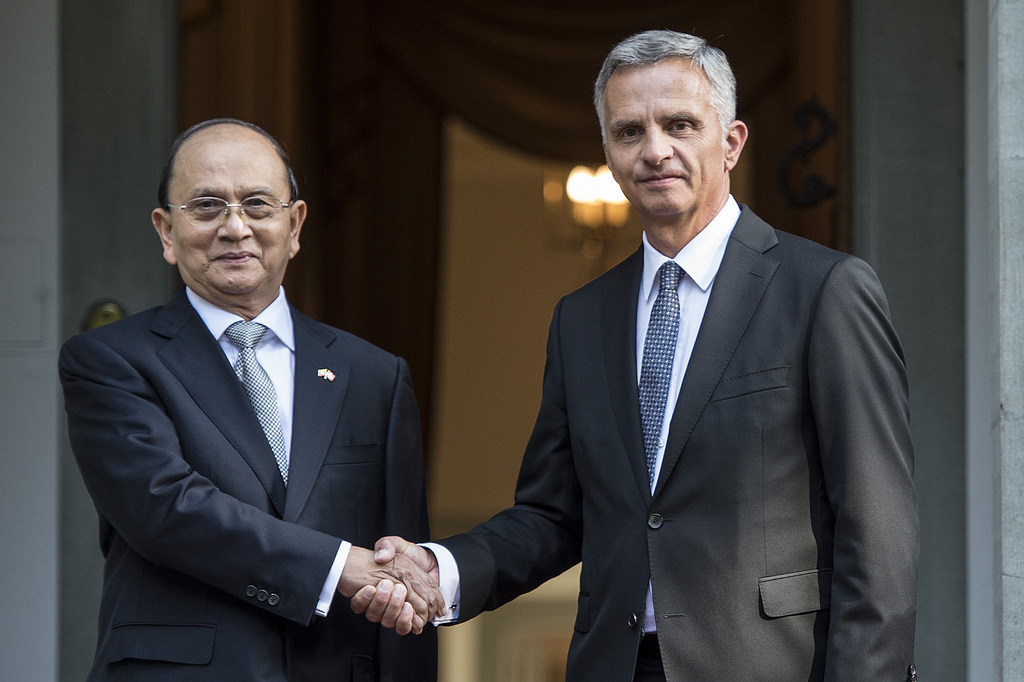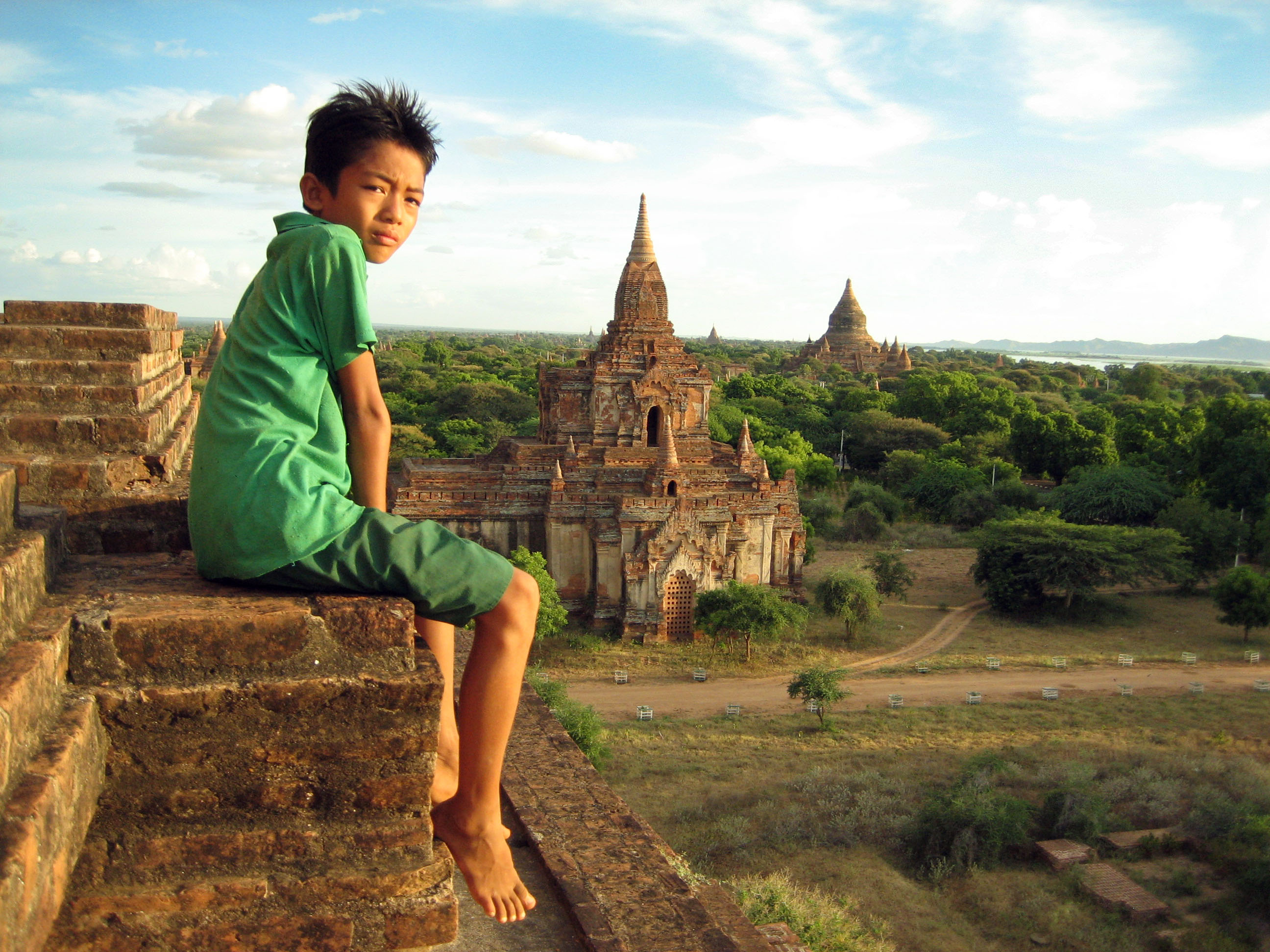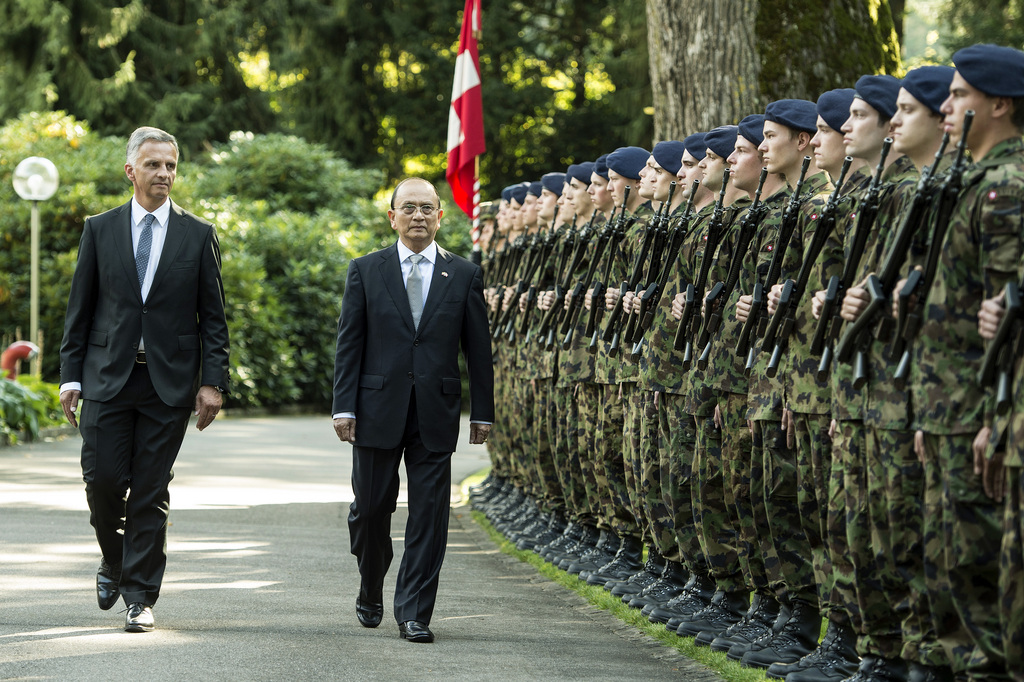Myanmar president calls for ‘patience and persistence’

In an interview with the Neue Zürcher Zeitung (NZZ), the president of Myanmar, Thein Sein, defends the continued central role of the army, which is guaranteed a quarter of the seats the southeast Asian country’s parliament.
The leader said his country was going in the right direction, comparing the relatively peaceful transition in Myanmar with the violence seen in some countries during the Arab Spring.
The 69-year-old Thein Sein, who in March 2011 became the first civilian president of Myanmar after half a century of military rule, arrived in Switzerland on Friday as part of a ten-day European tour. He and Swiss President Didier Burkhalter discussed Switzerland’s engagement in the transition and intensifying bilateral relations.
“The greatest success has been the ceasefire agreements with the various rebel armies in a conflict that has lasted almost 60 years,” Thein Sein told the NZZ, explaining that they had tried to create a political process in which all sides, including previous government opponents, could participate.
“We’ve given amnesties to people who had previously been imprisoned for various reasons – some of them have even founded political parties since.”
It was pointed out, however, that one former prisoner, Nobel Peace Prize winner Aung San Suu Kyi, could not run for president because she had been married to a foreigner.
“Basically I believe that no one should be prevented from running as a candidate,” Thein Sein said. “But there are clear rules on how the constitution can be revised [by parliament and possibly a referendum]. I personally have nothing against changing the constitution, as long as it’s done in accordance with the law.”
And how would he vote if the article preventing Aung San Suu Kyi from running was put to a ballot?
“One has to consider the interest of the country before that of any individual or group. Plus you’ve got to respect the will of the majority. If I considered both of these factors, I’ll make the right decision.”

More
Myanmar
Army role
Another controversial paragraph in Myanmar’s constitution guarantees the army a quarter of the seats in parliament. The paper wondered why this was necessary in a system striving to be democratic.
Pointing to the decades of armed revolts, Thein Sein said the army was often the only means of preserving the country’s unity, “therefore it also had to take on a political role”.
“The military leadership is perfectly aware that Myanmar is going through a transition. As you might have noticed, our reform process started at almost exactly the same time as the Arab Spring, but while some countries in the Middle East fell into chaos, Myanmar stayed comparatively calm. That is also thanks to the military,” he said.
“The more that democracy takes hold, the less important the role of the military will be.”
Challenges
But while progress has been made in the country of 50 million people and multiple ethnic groups, a nationwide ceasefire agreement – something the government would like to see before the general election in 2015 – is still a work in process.
“The first phase of the peace process was above all about stopping arms dealing. We’ve almost achieved this. But you’ve got to bear in mind that the armed rebellions [in Myanmar] have a longer history than many conflicts in the world – we therefore need patience and persistence.”
Looking to the future, Thein Sein said the major challenges ahead include turning Myanmar into a “stable, peaceful country” – which he said would require a nationwide ceasefire agreement – and economic development.
“Twenty years of sanctions mean the poverty rate is high. We no longer want to be one of the least developed countries in the world. We want to be able to offer our younger generation a better future,” he said.
Thein Sein added that a further goal was for next year’s election to be “fair and free”. But how will this be possible if, as many believe, Aung San Suu Kyi would win if she could run?
“In politics everyone believes they’ll win,” he replied. “There are already 65 parties wanting to take part in the elections and more will probably sign up. Ultimately it’s the voters who decide. And now you’re no doubt going to ask me how I’m going to vote…”
Actually the NZZ preferred to know whether he was going to run for another period in office.
“To be honest, I’d like to retire. But you have to think about what’s best for the country and the people.”

In compliance with the JTI standards
More: SWI swissinfo.ch certified by the Journalism Trust Initiative

You can find an overview of ongoing debates with our journalists here. Please join us!
If you want to start a conversation about a topic raised in this article or want to report factual errors, email us at english@swissinfo.ch.